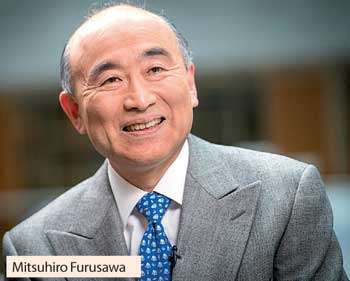04 Jun 2018 - {{hitsCtrl.values.hits}}
 Following the introduction of the automatic pricing formula on fuel prices by the government last month, the International Monetary Fund (IMF), with whom Sri Lanka has an ongoing Extended Fund Facility (EFF) arrangement, now wants the government to consider a similar formula for electricity prices and a plan to restructure debt-laden state-run SriLankan Airlines.
Following the introduction of the automatic pricing formula on fuel prices by the government last month, the International Monetary Fund (IMF), with whom Sri Lanka has an ongoing Extended Fund Facility (EFF) arrangement, now wants the government to consider a similar formula for electricity prices and a plan to restructure debt-laden state-run SriLankan Airlines.
“The recent approval of an automatic fuel pricing formula is a major achievement towards reducing fiscal risks from state-owned enterprises (SOEs).
In this regard, it is essential for the authorities to implement an automatic pricing formula for electricity and a restructuring plan for Sri Lankan Airlines, as well as further strengthening SOE governance and transparency,” the IMF said.
Despite the IMF’s recommendation, it remains highly doubtful whether the current coalition government, which is characterized by frequent infightings, has the political capital to introduce a pricing formula for electricity. Although inflation has remained relatively low, the cost of living has escalated. Higher taxes and recent hikes in fuel prices, aiming fiscal consolidation, have delivered a massive blow to the masses.
Although over the years Sri Lanka has been able to reduce poverty, inequality still remains a major issue. The country’s 80 percent of the tax revenue comes from indirect taxes, where the poor, the middle-class and the ultra rich are taxed at the same rate.
With the new Inland Revenue Act introduced from April 1, the government has pledged to bring down the indirect tax contribution to 60 percent.
Public anger towards the present coalition government remains high, as they have miserably failed in so many fronts, while not being able to keep the election promises they made. The drubbing the coalition government political parities received at the local governments held early this year evidently showed this sentiment.
Also, due to the higher cost of living and taxes, many had to tighten their belts which the ruling class and their cronies are seeing enjoying the same or even better perks. For instance, President Sirisena is reportedly have told MPs that they don’t have to pay taxes as what they are getting as salaries and payments from taxpayers’ money amount to be honorariums. On top of that, these legislators get tax-free cars.
Meanwhile on June 1, the IMF Executive Board announced the conclusion 2018 Article IV consultation and the completion of fourth review under the EFF with Sri Lanka, which resulted in approving US $ 252 million disbursement.
The total disbursements under the three-year EFF arrangement of US $ 1.5 billion Sri Lanka entered with the IMF on June 2016, currently stands at little over a billion dollars.
Despite the general negative sentiment prevailing among the masses of the state of their economy, the IMF was upbeat about Sri Lanka’s economic progress driven by “landmark” structural reforms.
“Sri Lanka has made important progress under its Fund-supported programme. The authorities’ efforts to improve the policy mix through fiscal consolidation, prudent monetary policy, and landmark structural reforms are supporting the economic recovery, despite recent shocks.
Sustaining the reform momentum is critical to strengthen the country’s resilience to shocks, given the still sizable public debt and low external buffers, and to set the foundation for strong and inclusive growth,” following the Executive Board’s discussion of the review, Mitsuhiro Furusawa, Acting Chair and Deputy Managing Director of the IMF, said.
“Further progress with revenue-based fiscal consolidation, supported by the new Inland Revenue Act, is needed to help safeguard important social and infrastructure spending, including in response to natural disasters. Going forward, a robust fiscal rule and medium-term debt management strategy will help place debt firmly on downward path,” he added.
Meanwhile, Furusawa stressed the need for the Central Bank to continue to manage the monetary policy prudently in case of price shocks and market volatility.
He also said efforts to build up international reserves should be sustained, with exchange rate flexibility as the first line of defence in response to volatile global capital flows.
“Upgrading the Central Bank law will be instrumental for the new inflation-targeting framework. While financial soundness indicators remain stable, continued credit growth in the real estate sector warrants close monitoring. The authorities should step up implementation of structural reforms, with a focus on fostering gradual trade liberalization and the investment climate, developing a natural disaster risk financing framework, and promoting gender equality in the labour market together with well-targeted social safety nets,” Furusawa said.
18 Nov 2024 48 minute ago
18 Nov 2024 2 hours ago
18 Nov 2024 2 hours ago
18 Nov 2024 2 hours ago
18 Nov 2024 2 hours ago